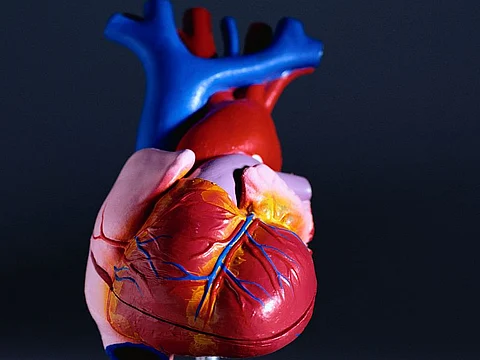WEDNESDAY, Aug. 9, 2017 (HealthDay News) -- Myocardial injury occurs frequently following transfemoral (TF) transcatheter aortic valve replacement (TAVR), but does not predict outcome, according to a study published in the Aug. 14 issue of JACC: Cardiovascular Interventions.
Anja Stundl, M.D., from Heart Center Bonn in Germany, and colleagues measured cardiac high-sensitivity troponin I (hsTnI) and creatine kinase MB (CK-MB) levels at pre-defined time points in 756 consecutive TF TAVR patients to assess the occurrence of myocardial injury during the first 72 hours.
The researchers found that hsTnI and CK-MB were elevated in 51.6 and 7.4 percent of patients, respectively, after uneventful TF TAVR. There was a correlation for myocardial injury with transcatheter heart valve (THV) type: Patients who received LOTUS THV more often had myocardial injury (LOTUS, 81.6 percent; Direct Flow Medical, 56.4 percent; CoreValve, 51.2 percent; Evolut R, 42.7 percent; SAPIEN XT, 40.4 percent; SAPIEN 3, 36.6 percent; P < 0.001). There was no correlation for myocardial injury defined by hsTnI with adverse outcomes at 30 days (3.1 versus 2.7 percent; P = 0.778) or one year (16.7 versus 17.2 percent; P = 0.841). An increase in CK-MB was also not associated with mortality at 30 days (5.5 versus 2.8 percent; P = 0.258) or one year (16.4 versus 17.3 percent; P = 0.856).
"The extent of cardiac biomarker elevation depends on THV type but is not associated with adverse short- and long-term outcomes after uneventful TAVR," the authors write.
Several authors disclosed financial ties to the pharmaceutical industry.
Abstract/Full Text (subscription or payment may be required)
Editorial (subscription or payment may be required)


